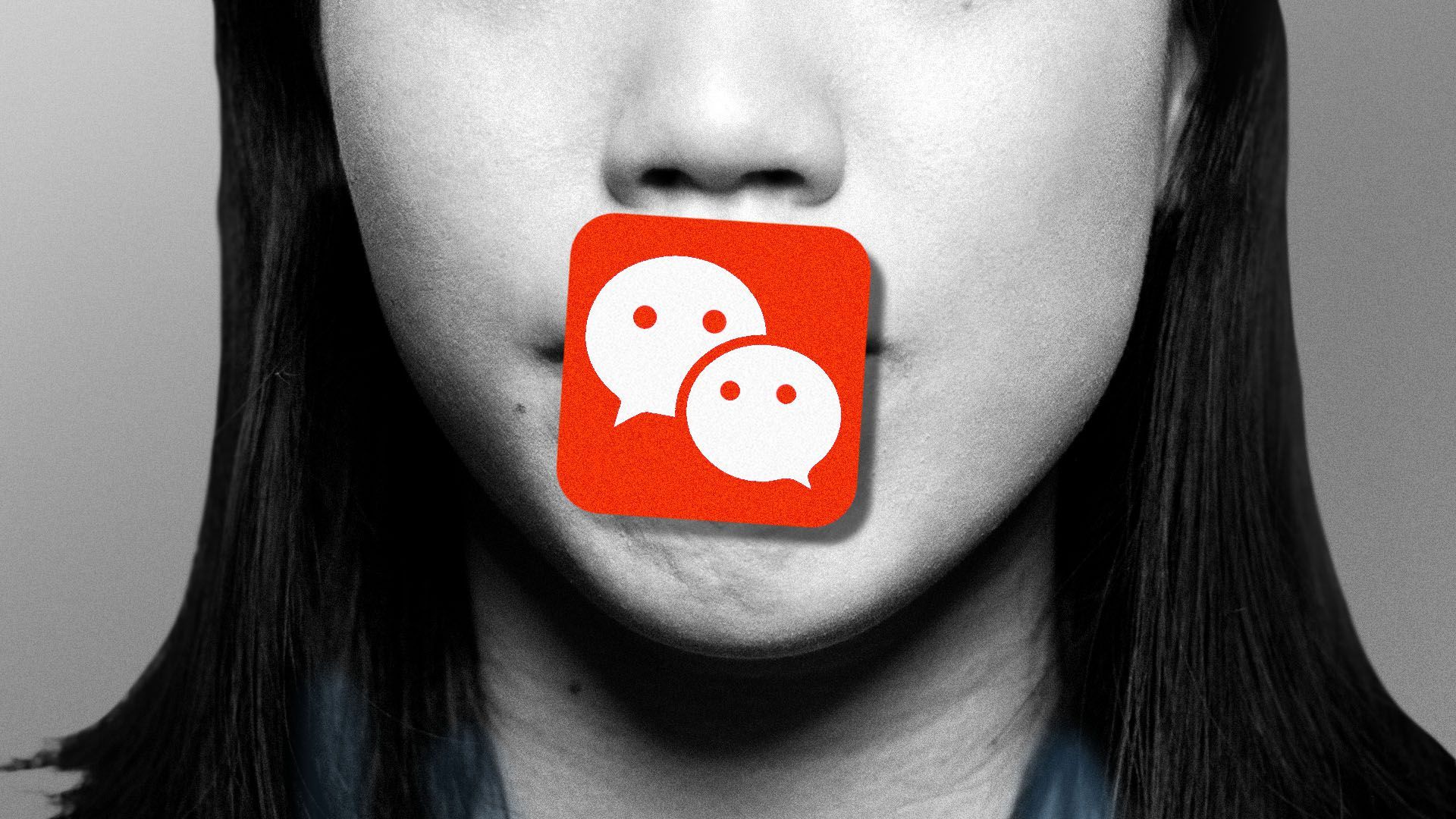The WeChat ban vs. the First Amendment
Add Axios as your preferred source to
see more of our stories on Google.

Illustration: Sarah Grillo/Axios
The Trump administration said Monday it would challenge a federal court ruling Sunday that temporarily blocked its attempt to curb the use of Chinese messaging and e-commerce app WeChat in the U.S.
The big picture: WeChat's ban has had a lower profile than TikTok's, but the fate of the app, widely used by Chinese people around the world to stay in touch with family and friends, is at least as consequential.
Why it matters: The ruling suggests that WeChat's fate in the U.S. could be decided not only on grounds of national security and commercial regulations but also around freedom of speech principles.
- "It's a mistake to think of this as (only) a sanction on TikTok and WeChat," tweeted Jameel Jaffer, the inaugural director of the Knight First Amendment Institute at Columbia University.
- "It's a serious restriction on the First Amendment rights of US citizens and residents — a restriction that the Trump admin should have to justify."
Details: In her ruling, Magistrate Judge Laurel Beeler of the U.S. District Court of Northern California, said that she would issue an injunction to block the Commerce Department's ban of WeChat because the case's plaintiffs, a group representing WeChat users, made a compelling enough case that the ban violated their First Amendment rights.
- The judge noted there are no substitute apps for Chinese-speaking Americans to use. Millions of Americans use WeChat to communicate with loved ones in China. The app is also relied on by many Chinese-owned businesses in the U.S.
- "[T]he regulation — which eliminates a channel of communication without any apparent substitutes — burdens substantially more speech than is necessary to further the government’s significant interest."
- "This affects the assessment of the public interest," she wrote, adding that there's been little evidence presented of WeChat's national security threat.
Between the lines: The Trump administration's campaign against WeChat and other Chinese-owned apps suggests that its vision goes well beyond plugging security holes and looks to push Chinese consumer tech services out of the U.S. market.
- China has been doing this for years in its own homeland. Now the U.S. is saying that two can play at that game.
- That might be fair, but it leaves the U.S. playing more and more by China's rules.
Be smart: In the ongoing trade fight between the U.S. and China, users, along with creators and advertisers, have become collateral damage.
- TikTok warned advertisers in August it would provide refunds in the event of a ban, per Reuters. While the app's fate has hung in the balance, advertisers have scrambled to figure out contingency marketing plans.
- Top TikTok creators had to quickly build profiles on rival sites like YouTube and Triller, in case they lost access to their millions of followers on TikTok.
What's next: Users can continue to operate WeChat in the U.S. for the moment. The Trump administration can appeal the judge's order.

